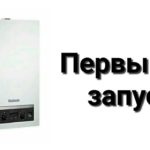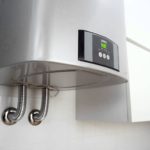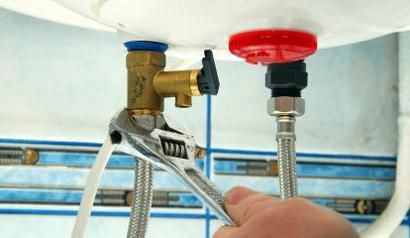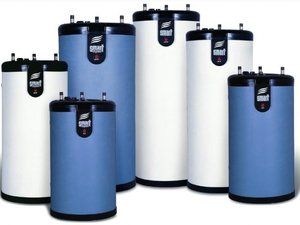What is better: a gas water heater or an electric water heater?
The use of autonomous water heating systems is becoming widespread not only among owners of private housing construction, but also among residents of apartment buildings. If for some this is the only way to increase the comfort of living in the absence of a central water supply (hot, cold), then in apartment buildings the installation of autonomous systems is due to interruptions in the water supply and non-compliance of the temperature regime with established standards.
The main criteria for choosing heating devices are:
- performance (power);
- efficiency;
- conditions and features of equipment installation;
- price.
All these features directly depend on the type of energy carrier used, which are mainly gas and electricity. Modern geysers and electric heaters can fully satisfy the need for hot water. Each type of heater has its own advantages and disadvantages.
The content of the article
What is a geyser
A geyser is a type of device in which heating occurs under the influence of a gas burner flame. There are two types of water heating equipment. Cumulative (boiler) and flow-through. The most widespread are flow-type devices.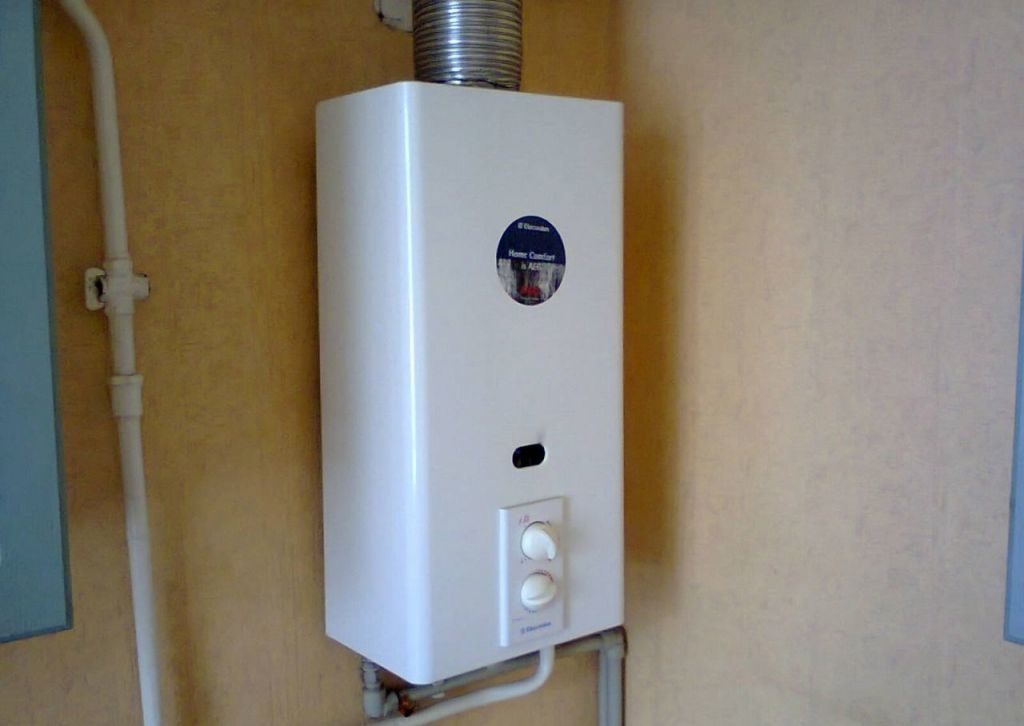
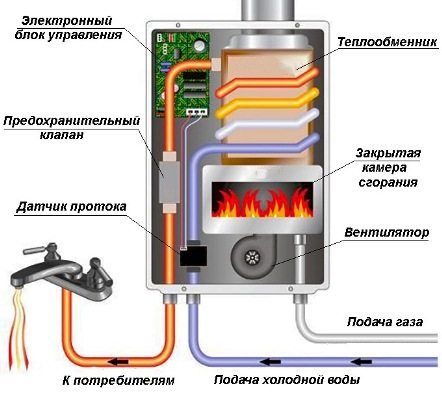
Advantages of a geyser
The main advantage is the cost-effectiveness of the equipment with fairly high productivity.Additional positive qualities include the following characteristics:
- Small dimensions;
- The ability to use hot water at any time during the entire service life;
- The presence of control and measuring equipment and an electronic control system allows you to regulate the combustion process depending on the existing water pressure in the system and at the outlet at the sampling points.
Using a boiler allows you to have a large amount of water on hand at one time, but heating it will require a certain period of time.
The choice of equipment should be made based on the expected water consumption and installation of the hot water supply system. If there are several sampling points (taps, mixers), you should choose equipment with higher power. A specialist can calculate the required power.
Flaws
The disadvantages of gas heating devices are the need to develop design documentation, approval by regulatory authorities, and complexity of installation. The installation is not economically feasible in the absence of a centralized gas supply. Using liquefied (ballooned) gas will be too expensive.
Electric water heater
In electrical appliances, a heating element is used as an element for heating water. Based on the type of design, they are also divided into storage and flow. But the latter require the use of heating elements of increased power, which creates an additional load on the electrical wiring and increased energy consumption.
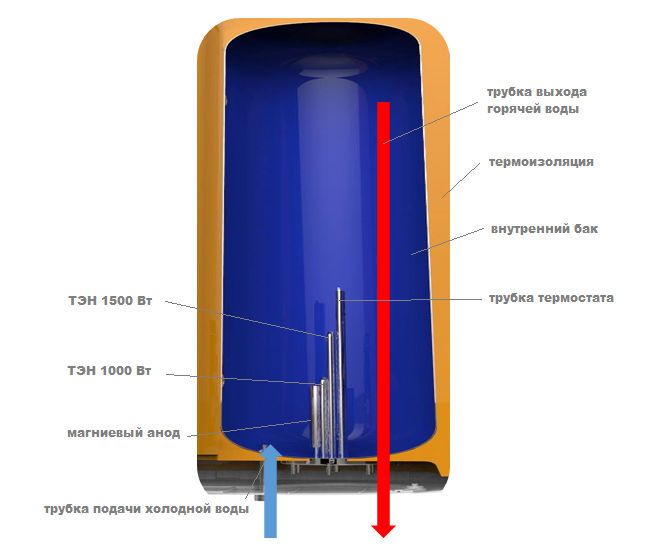
Therefore, a boiler (storage) type system is most often used. This option can be used to simultaneously heat a large amount of water, depending on the capacity of the tank used, and as a combined system.
In this case, after heating to a certain temperature, water can flow to the sampling points. The automation used in these devices controls flow and supply, and ensures that heating elements are turned on and off, depending on the set operating modes.
Advantages
The main advantage of electric heaters is that there is no need for additional approval for installation. The installation and connection process is simpler compared to gas equipment.
A comprehensive solution for simultaneous heating and water supply allows you to simultaneously use several taps or mixers for selection. Reliability and safety during operation is another plus in favor of these devices.
Flaws
The main disadvantage is considered to be high energy consumption. Modern electric heaters, due to the installed electronic equipment, are designed to operate in standby mode. Switching on is carried out depending on the modes of use and the amount of water consumption. In most cases they are always on.
The disadvantages include the possibility of failure of the heating elements due to scale deposits due to poor quality water. But modern heating elements have a ceramic shell that prevents the process of scale deposition. They are more expensive, but their service life justifies their cost.
Conclusion
The conclusion from all of the above is that the choice of water heater should be made based on the operating conditions of the device itself. More economical gas equipment is not always able to provide sufficient heating of water at high flow rates.
Installation costs are higher than for electric heaters.In turn, electrical devices require high-quality electrical wiring, and with constant operation, financial costs can be quite significant. The choice always remains with the consumer.

